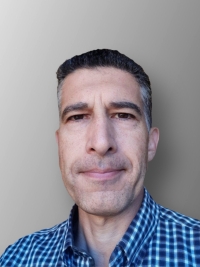My Approach
***Dear Viewer, Thank you very much for your interest in my profile. I am currently not offering further appointments, but please read on about a perspective on what systemic psychotherapy can potentially offer, in the event this is useful in your search. Wishing you the Best for your Quest***
For prospective clients: This is an unprecedented time for talking therapies, but potentially an unnerving one too, given the plethora on offer. The challenge of trusting any particular therapist is mirrored in therapists' attempts to stand out in 2-Dimensions and in the absence of non-verbal communication.
I endeavour to be the therapist I wish to have for myself and loved-ones. What would this look like?
-A warm and relatable style.
-Looking for the person behind the "problem", and the areas of richness (i.e. resources) the latter overshadows.
-Strengthening the human networks around the individual as an additional resource, in many cases this being the answer to treating complex conditions such as eating disorders.
-Having relationship repair (towards others and one’s self) as a main focus, through creating opportunities for therapeutic (corrective) emotional experiences registering with the emotional (non-cognitive) part of our brain.
-Inviting as many views as possible in defining the challenges. New solutions emerge from new definitions of issues.
-Being aware of the power imbalance the connotations of "therapy" bring from the outset (e.g. the healthy treating the sick), seeing our interaction instead as an opportunity for both parties to co-evolve in our understanding of ourselves and our relationships. This involves the constant reworking of our beliefs, in the process re-discovering our humanity.
-Providing enough safety for curiosity, exploration, creativity and playfulness.
-Aiming for changes in your lived experience (i.e. a change in the quality of your daily experience) in a sustainable manner (i.e. our common journey enabling you eventually to rely on your own internal and external resources).
For clinicians: My systemic psychotherapy training is utilizing theories from each of its stages (e.g. strategic, structural, social constructionist, attachment-based, narrative). In terms of practice, areas of focus can be, as part of assessment, and beyond: observing the suggested presentation (and different views), associated risk, developmental milestones, life events (e.g. separations, domestic violence, etc.), and current circumstances, examination of family relations and structure, the wider context of the family (including cultural differences), horizontal stressors, generational patterns and beliefs, attachment difficulties, life-cycle transitions and timelines. Emphasis is given on strengths and protective factors. Intervention relies on formulation, which is a synthesis of the factors described above, and is informed by theories and approaches from the different, aforementioned models of family therapy. I construct and revise complex working formulations informed by attachment, special needs, vertical and horizontal stressors (often linked to trauma).
I have a special interest in attachment and Emotionally Focused Therapy (EFT) as this applies to Individuals (EFIT), Couples (EFT) and Families (EFFT).
About Me
Family, Couples and Systemic psychotherapist
I am originally from Greece, having lived in the UK in the last 27 years, half of which I have spent studying. I initially trained as a biomedical scientist at undergraduate (biochemistry) and post-graduate (molecular biology) levels, before deciding to change direction due to my keen interest in psychology, wishing to develop further the intuitive, right side of my brain, well-complemented by the analytical-thinking skills of my science training; the parallels and overlaps between the two apparently disparate fields are striking.
The latter process took 10 years to complete, starting with voluntary and then paid positions in helping/therapeutic roles, combined with further training totalling 6 years, in elements of the person-centred and psychodynamic approaches, finally qualifying as a family and systemic psychotherapist at Tavistock clinic.
I have worked in generic NHS mental health services for children and adolescents as a highly specialist family and systemic psychotherapist. I have also worked in specialist (e.g. eating disorders and neurodevelopmental conditions such as autism) NHS mental health services, as well as the 3rd sector (couple therapy and family therapy with adults) and a private eating disorders hospital for children and adolescents. Please see below a list of some of the most frequent presentations we can address in sessions.
I work with individuals, couples and families.
What motivates me as a therapist?
-Caring for others.
-A deep satisfaction in enabling others and myself grow.
-An insatiable curiosity about people and our place in the world.
-Continuously developing my intuition.
-A wish for my life, and that of others, to make sense.
I speak English and Greek.
I work with
- Children and young people
- Couples
- Families
- Individuals
- Private healthcare referrals
Special Interests
Like all UKCP registered psychotherapists and psychotherapeutic counsellors I can work with a wide range of issues, but here are some areas in which I have a special interest or additional experience.
Types of Therapies Offered
- Family and Systemic Psychotherapist
- Family Therapist
- Systemic Family and Couple Psychotherapist
- Systemic Psychotherapist
What I can help with
Types of sessions
- Face to Face - Long Term
- Face to Face - Short Term
- Online Therapy
- Telephone Therapy
London Office
London
View Map
UKCP College
- College of Family Couple and Systemic Psychotherapy (CFCSP)


